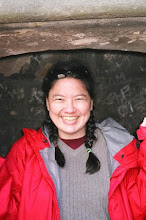Ants Tend to Gravitate to What They Do Best, Researchers Show
The remarkable ability of ants and other social insects to divide the work in a colony is a result of many factors: genes, age, social interactions, even size or other physical attributes.
But might individual experience be involved as well? Might those who turn out to be good at a task end up specializing in that task, and those that aren’t go on to something else?
These are questions that Fabien Ravary and Emmanuel Lecoutey of the University of Paris-North in Villetaneuse, France, and colleagues sought to answer. To do so, they chose an ant, Cerapachys biroi, that allowed them to focus on experience to the exclusion of everything else. These ants produce a new generation of workers all at once, so they are of precisely the same age and size and are raised under the same conditions.
The researchers allowed workers to forage for food, with different outcomes. Half were given prey on every trip, while the others never obtained prey. As described in Current Biology, the successful ants foraged more and more, while the unsuccessful ones foraged less and less. After 30 days, the successful foragers were still foraging, while the unsuccessful ones were doing another task: caring for the brood.
The researchers say their work suggests that while the division of labor within a colony is a function of many factors, it can be influenced by positive (or negative) reinforcement of individuals based on their experiences.



This paper's finding sounds a bit like my experience with public education...
ReplyDeleteIt is perfect time to make some plans for the future and it is time to be happy. I've read this post and if I could I desire to suggest you some interesting things or suggestions. Perhaps you could write next articles referring to this article. I want to read more things about it! Extermination
ReplyDelete